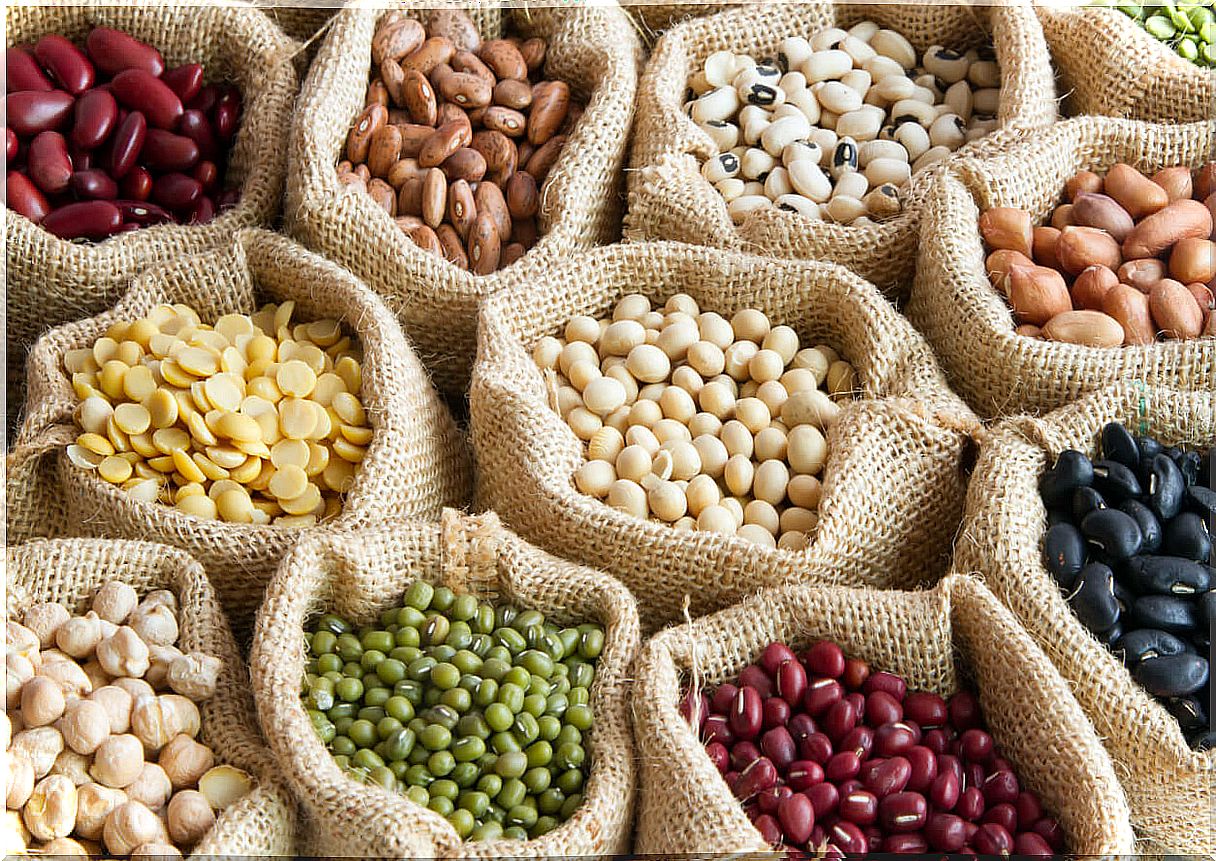3 Benefits Of Legumes For Children

Legumes are foods that have a high nutritional density. However, they are not part of everyone’s usual diet. Many people report certain gastric or intestinal discomfort after consumption. However, the intake of legumes has several benefits in children.
Keep in mind that most nutrition experts advise consuming legumes at least 1 or 2 times a week. Also in children, this recommendation should be made effective, since it could be very beneficial for health.
Nutritional value of legumes
Let’s start by talking about the nutritional value of legumes. Although we can find different varieties, the truth is that they all share a series of characteristics in common.

They stand out for the presence of fiber inside, an essential substance for maintaining good digestive and intestinal health. In addition, we are facing a key element in terms of the functioning of the microbiota, since it serves as an energy substrate for the bacteria in the intestine. Thanks to the fiber, their growth is stimulated.
In addition, the legumes themselves have a protein concentration much higher than that of other vegetables. However, we are talking about nutrients of low biological value, this means that they are deficient in essential amino acids and that they do not have a high level of digestibility.
Finally, special mention must also be made of the micronutrients in these foods. Most of them have essential minerals inside them, such as iron, zinc or calcium. These fulfill very important functions within the body.
Benefits of legumes in children
So, next, we will discuss the main benefits of legumes in children, as well as the position of science in this regard.
Lower risk of constipation
Fiber is a key element when it comes to improving intestinal transit. It manages to increase the volume of the fecal bolus, which generates a more effective stimulation of the mechanoreceptors of the tube. From here, the risk of constipation decreases. This is stated in a study published in Alimentary Pharmacology & Therapeutics .
Keep in mind that constipation is a common disease in children. For this reason, the inclusion of legumes and other vegetables in the diet is key to prevent problems related to fiber deficiency.
Effective growth
Proteins are essential to ensure the growth and development of tissues. According to research published in the Annals of Nutrition & Metabolism , it is important to ensure that the requirements of these nutrients are met at all stages of life.
As a general rule, children tend to have slightly higher protein demands than sedentary adults. Legumes can help meet the needs, although the presence of animal products in the diet should not therefore be reduced.
Lower risk of pathologies related to mineral deficiencies

Finally, it should be noted that legumes have significant concentrations of minerals. Although the absorption of these can be slightly reduced by the fiber content of foods, it is true that a regular supply of legumes reduces the risk of developing deficits.
Among all the pathologies caused by an inefficient supply of minerals, two must be highlighted: anemia and osteoporosis. Both are manifested from chronic exposure to a situation of inappropriate consumption and both are rare in children. However, it is important to lay the pillars of a good diet from the first stages of life to prevent future problems.
Include legumes in children’s diets to reap all the benefits
As you have seen, the consumption of legumes in the diet of children has several health benefits. It is important that these foods appear at least 1 or 2 times a week. It is possible to include them in all its variants, whether in salads, in stir-fries, stews …
Also, always remember that one of the pillars of a healthy diet is variety. It is optimal to broaden the spectrum of foods consumed. Thus, the fact of suffering a nutritional deficit that conditions the proper functioning of the body becomes less likely. Now, keep in mind that if they are not cooked well, legumes can increase gas production at the intestinal level.










